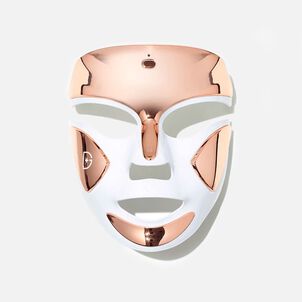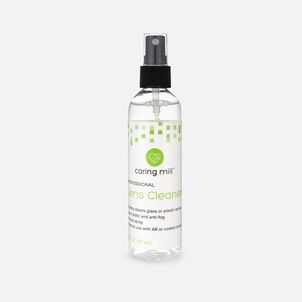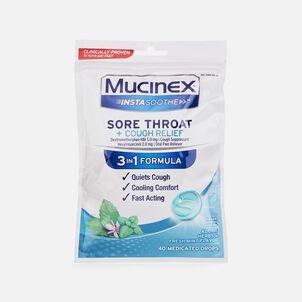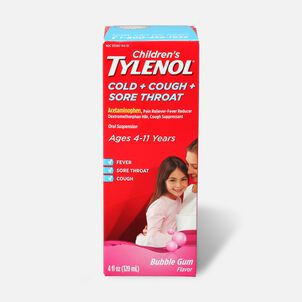 | SHOP NOW
| SHOP NOWWe’re not going to sugarcoat it; allergies are (at best) uncomfortable. Whether it’s a runny nose, constant nasal congestion, itchy eyes, hives, sneezing, trouble breathing, or a multitude of other symptoms, allergy sufferers need relief.
If you’re new to seasonal allergies, or experiencing allergic reactions, you’re probably wondering, “when will this end?” Before you run to the shelves, we’re going to give you all the must-have information by comparing two particular types of remedies: drug-free versus over-the-counter (OTC) meds.
Drug-Free Options
Sometimes you want to explore alternative options. Maybe you feel like you’re taking too many medications, or maybe traditional remedies are a tried and true (non-) prescription for you. Either way, natural drug-free solutions can provide effective and soothing relief for seasonal allergy symptoms.
Nasal Saline Irrigation
Nasal irrigation is kind of just what it sounds like: irrigating the nasal passages. It’s used to combat seasonal allergy symptoms occurring in the nose, like congestion, and year-round nasal allergy symptoms (also called allergic rhinitis or hay fever) which could be caused by dust mites and mold, and express themselves through stuffy and runny noses. A device that uses saline solution flushes mucus out of the nose and sinuses to help you breathe more easily (think HSA eligible neti pots). The saline solution is also key, and you can buy premixed packets of it.
Something to note: the Food and Drug Administration (FDA) recommends using distilled water or water that is boiled and then cooled.
Vaporizers and Humidifiers
Vaporizers and humidifiers are other natural ways to treat an allergy that’s affecting your nasal passages. (FYI: a personal vaporizer is HSA eligible; a humidifier is eligible for reimbursement with an LMN, or Letter of Medical Necessity.) Both involve adding humidity to a room to help clear the affected person’s sinuses. What’s the difference, you ask? A vaporizer is a warm mist humidifier, while a humidifier is a cool mist humidifier. Each boils water and adds moisture to the air, perfect for when you’re sleeping.
If you’re trying to figure out which one might be best for you, a vaporizer creates very hot water, which can naturally be dangerous if spilled (so, it might be best to stick to a humidifier if you have young kids or pets). But, a vaporizer can often run cheaper, so there’s pros and cons to each.
Another point for vaporizers and humidifiers? You can make it an aromatherapy experience by adding essential oils to the water in each. (If you’re into those!) According to Healthfully, menthol and eucalyptus are extra effective at clearing nasal passages.
Sinus Compresses
Remember as a kid, getting a sports injury and having to ice your face? A sinus compress is the same thing (sort of), except instead of a cold ice pack or bag of frozen peas, it’s using a special heating pad for your sinuses. The moist heat gives you some temporary relief from sinus pressure and congestion by reducing swelling and opening the nasal passages and sinus cavities.
Sublingual Immunotherapy
Sublingual immunotherapy is an alternative to allergy shots that gives the person small doses of what they’re allergic to, according to Dr. Sandra Lin, a leader in the field. This increases immunity or tolerance to the allergen and thus reduces the symptoms. It comes in the form of allergy drops administered under the tongue.
First step to this alternative means allergy testing (reimbursement is eligible with an HSA). Talk to your doctor about whether sublingual immunotherapy can work for you.
Even more natural options
We previously covered these and other drug-free, natural relief options, but thought it was important enough to briefly rehash. Certain alternative health professionals, like an acupuncturist or a chiropractor, can actually help relieve allergy symptoms. A chiropractor can remove blocks in the nervous system and boost proper immune function, at times reducing allergy symptoms. And acupuncture can help reduce symptoms associated with hay fever. And of course, stress can always exacerbate any sort of symptom, so finding ways to reduce stress, like meditation, journaling, yoga, or exercise. Even pain can exacerbate stress, so solutions like relaxation masks can actually help lessen pain and decrease stress. (Pro tip: here’s an HSA Store favorite: the Bed Buddy® at Home Relaxation Mask in lavender).
OTC Meds
Now it’s time for the other side of the coin. You might be more familiar with these options than the drug-free ones, or maybe you’re just starting to explore these options. Whatever the case, you’re sick of the spring fever. Not to say that spring isn’t beautiful: the birds are chirping, the sun is shining, the leaves are lush. But allergies dampen all of that, so you’re ready to start getting control of your health. Or maybe you have allergies all year-round, or you’re just suffering from an allergic reaction. Whatever the ailment, these over-the-counter solutions might be just what you’re looking for.
Oral Antihistamines
These might be the most popular OTC allergy medication. An antihistamine is a drug that treats all the symptoms allergy sufferers are experiencing: nasal congestion, itching, sneezing, an eye allergy like itchy and watery eyes, even a food allergy (and all of the etceteras). Examples include:
Loratadine (Clairitin)
Fexofenadine (Allegra)
Cetirizine (Zyrtec)
Part of why they’re so popular is that they’re non-drowsy, unlike:
Diphenhydramine HCL (Benadryl)
Chlorpheniramine (Chlor-Trimeton)
That being said, oral antihistamines can provide powerful, quick symptom relief, and the drowsy ones can help you fall asleep. (Just make sure to take the drowsy ones at night, or when you don’t need to do important things like work, drive, or operate heavy machinery.) And of course, since oral antihistamines are HSA eligible, we carry a variety of options you can check out.
Decongestants
If you’ve ever experienced the sensation of having such a stuffy nose that you don’t even remember what it was like to breathe clearly, you’re familiar with the pain that is congestion. Oral antihistamines can help, but only a decongestant (think Sudafed, Mucinex, etc.) can truly work wonders on said predicament. Added bonus (as you may have guessed)? Decongestants are HSA eligible.
The important thing to remember is that unlike oral antihistamines, which, if you have perennial allergies like allergic rhinitis and your doctor’s instructed you to take them daily, decongestants should not be taken for a long period of time.
Nasal Sprays
You didn’t think we were done with nasal allergies, did you? In addition to the drug-free nasal options, you might also consider nasal sprays. Inserting right into the nostrils, a nasal spray can offer fast, temporary relief of nasal congestion, stuffy nose, and runny nose. Usually they help reduce swelling of the nasal passages in order to treat the symptoms. You can use your HSA to buy these, so we have a host of different nasal sprays for you to peruse.
The final question: Drug-free vs. OTC?
Honestly, there’s no right answer -- it really depends on your preference and symptoms. You could be using one, the other, or both – we just want to give you all the information you need so you can make the decision that’s right for you. And, whatever you decide, we’ve made it easy for you to treat your allergy symptoms with both drug-free and OTC options. So now when we say “Happy Spring,” we’re hoping you’ll actually get to feel it.



















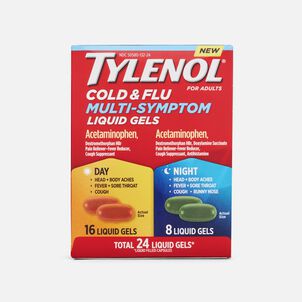






.png)
